Challenges in Designing Digital Products for African Markets
Night Mode

This is a summary of a talk that our CTO Rafal Cymerys gave together with Jonathan Gall during UX Berlin Meetup. Watch the video recording here.
While working with US and EU-based clients, we assume a lot of design problems are already solved. There are a lot of patterns that we can follow when designing digital experiences for certain industries. A variety of of-the-shelf tools and online services will support our development efforts. If you think about it, there is little chance that you ever had to design the payment process from scratch - usually it’s just a matter of adding a form connected to Stripe and assuring the overall checkout process is smooth. You don’t have to think much about how the process works under the hood, do you?
But what if you were to build a product for a totally different market, like West Africa?
What I’m going to tell you about is a few highlights of the work we did for Yoonema - a rapidly growing e-commerce platform, solving logistic challenges of purchasing premium products in Senegal.
What's happening with Africa?
For a long time Africa was vastly underestimated by the western world.
What we’re seeing right now is large growth of African economies. They account for 14% of world’s population today, with the number estimated to achieve 25% by 2050.
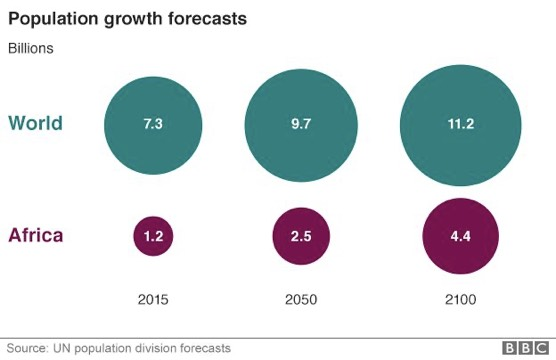
Contrary to aging European countries, Africa’s population is young with 41% of the population under 15.
If we narrow it down to West-Africa, we’ll see 16 countries with 3 economic powerhouses of Nigeria, Ghana and Senegal. They’re all experiencing rapid economical growth, based on accelerating foreign investment and increasing political stability.
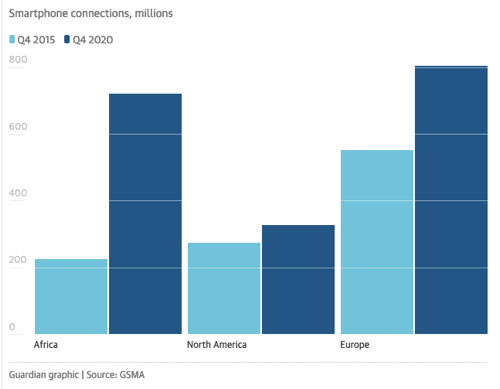
This means growing middle class with disposable income. Combined with exponential rate of growing access to the internet, we can see people who want to have access to a better lifestyle.
As any growing economy, they’re quickly jumping past the point where 3rd rate, low quality products are satisfactory.
With this context, we could assume that e-commerce would be booming there. After all, if people have money and access to internet, then...
What could go wrong?
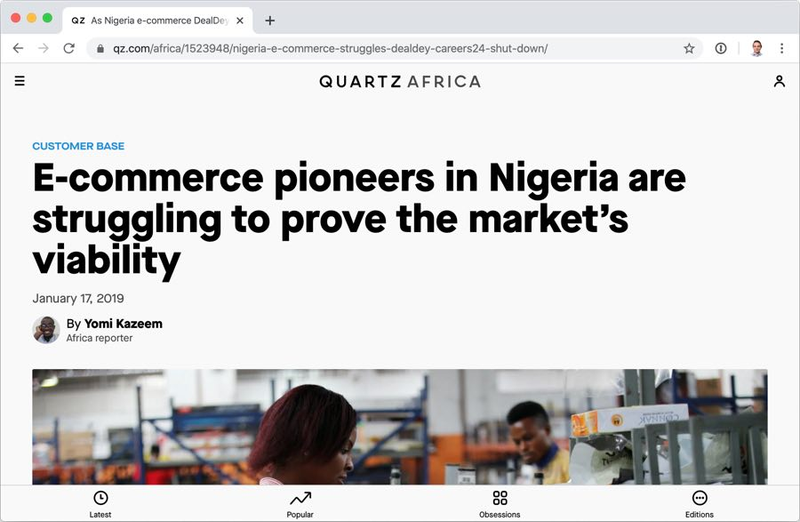
African e-commerce has been a rollercoaster ride, with a lot of players showing up on the market backed by large amounts of capital, but ultimately failing at unprecedented rate for e-commerce.
When designing digital experience for Yoonema, we started with analyzing challenges faced by other players and elements that didn't work out. We then looked into these in more details when performing user tests.
During the process, we discovered four areas that were crucial, but mostly overlooked as they seemed obvious.
Not taking the time to understand how people shop
The first thing that we noticed, was that the way that Africans shop is way different from what we knew. A lot of e-commerce startups, coming from the western world, blindly adopted Western models, assuming that well-tested in action there they will serve African needs just well.
As an example, in Western markets mobile commerce is still a second-class citizen. People very often use mobile for browsing, but still finalize transactions on their computers. Because of this, checkout experience is often optimized for desktop. During user tests, we quickly learned that Africa skipped the desktop and went straight to mobile, so the checkout experience must be mobile-first.
Another interesting thing that we learned was the importance of word of mouth. Africans rely on the social aspect way more than Europeans or Americans. You can build plenty of traction by marketing activities in Europe, but this alone won't work in countries like Senegal. To succeed, you need to build credibility in local community, by delivering the best customer experience possible to first customers.
One of the key takeaways here is that it's difficult to build valuable products without gaining a deep understanding of local culture and values. Besides constant user research, it's also important to have local people at decision-making positions in your team. There are some details that will be difficult to catch without living there.
Underestimating the logistical challenge
Looking at online reviews of failed African e-commerce businesses, we noticed that there was a lot of negative feedback regarding unkept delivery promises.
Very often, foreign businesses trying to launch in Africa, assumed that logistics are as simple as in America or Europe. In reality, logistics industry in countries like Senegal is still in its early stages. Local delivery startups are still on their way to figure out how to deliver packages efficiently and on time.
At the same time, there are also gaps in local infrastructure. Take a simple concept like an address - in Western world it's fairly organized: Street name, building number (based on physical order), zip code, city name and state. This allows delivery companies to both easily find their customers homes but also optimize their processes. In Africa, it's not always that easy - we've quickly learned that some customers don't have an address in that form, but rather along the lines of "when you pass the city, after you see a big billboard, turn right and drive 2 kilometers straight". The standard zip code field also turned out to be an issue - even though zip codes exist in Senegal, barely anyone know theirs. Asking for it during checkout turned out to be a showstopper for a lot of customers.
Getting this right is critical for any e-commerce business. Regardless of where they're located, customers always appreciate fast service and frictionless experience. This is one of the areas where we often had to adopt new tools to solve "old" problems. For example, to make location ubiquitous without having customers remember their exact geolocation, we've found a service that maps every meter of the real world into three words. Simple, but super effective.
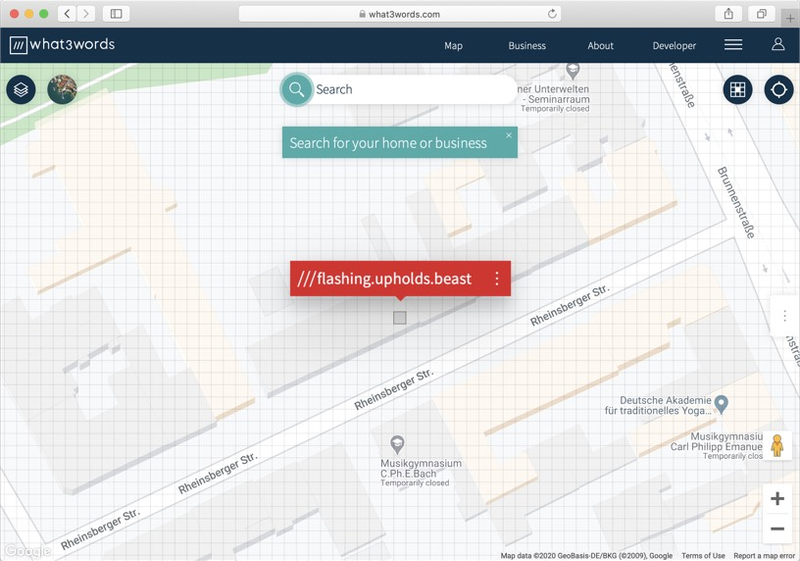
Missing local payment methods
There's nothing more frustrating to customers than offering them an option to purchase something, but not letting them finalize transactions. Another common issue with e-commerce startups entering Africa was not adapting to local payment models.
And the way people in Senegal deal with money is way different from Europe or America. The society is still vastly cash-based and never widely adopted debit or credit cards. Growth of mobile brought the country to the next level, skipping that. Digital wallets are gaining in popularity, with Orange Money being the major player here. A common way of managing money is to put some cash into the digital wallet via an Orange Money booth and then use it for small transactions throughout the week.
Larger transactions are however still handled mostly in cash. This creates additional challenges for online businesses, as they're also tasked with handling cash payments which proves to be a challenge.
Another aspect worth mentioning is handling currencies. What we've noticed was that foreign businesses sometimes assumed that offering USD or EUR is enough. This is of course equivalent to putting up a huge banner saying "we don't know anything about your country". Handling local currency (in West Africa most countries adopted West African Franc) is a must. But you can't underestimate foreign currencies either. With a lot of people emigrating to Europe or the US, supporting these currencies may be welcome as well. After all, it's making it easier for them to purchase gifts for their family members in Africa.
Lacking respect towards Africans
When we talked to some customers, a recurring questions we heard was "how do I know it's not counterfeit?". It turned out that it was common for e-commerce startups to offer low quality products and fakes. This worked fine for these businesses for a while, but with the power of word-of-mouth (and given how important word of mouth is in Africa), it ruined people's trust into e-commerce.
Moreover, many of these companies weren't present locally - all the talent was located overseas, treating Africa solely as the place to make money. This doesn't work well, given the past exploitation African countries have seen in the past. It further ruined trust of local customers.
These four areas are only the tip of an iceberg, given the overall complexity of the business, but they proved to be the most overlooked ones. During our user testing and rapid prototyping sprints, we quickly discovered hints that there may be something to look out for. Still, some of these challenges were truly surprising to us, especially when we learned the importance of small details like local address format. The most satisfying part was when, after resolving these issues step by step, we simply heard from customers that "yes, this makes sense".
Why does it matter now?
You may be wondering - as a designer, developer or a business leader - how is that relevant to you? Building for Africa may sound like an interesting story, but what's more to that?
It turns out, sooner than later, you may need to be prepared for African markets.
If you look at current demographics, we're seeing aging population in Europe, US or China. Africa on the other hand is young and ambitious. With a lot of foreign investments fueling growth of local economies, we're seeing growing middle class. With exponential growth rate of access to the internet, we're seeing whole new generation, that's aware of the world and is constantly looking for access to a better lifestyle.
It resembles China in the 2000s.
Computers were still too expensive for most Chinese people, and by 2010 only around one-third of China’s population had access to the internet. So when cheap smartphones hit the market, waves of ordinary citizens leapfrogged over personal computers entirely and went online for the first time via their phones. As with China’s rapid transition to the mobile internet, the country’s weakness in incumbent technology (desktop computers, landline phones, and credit cards) turned into the strength that let it leapfrog into a new paradigm.
So, are you prepared? Just remember, you may have some competition.
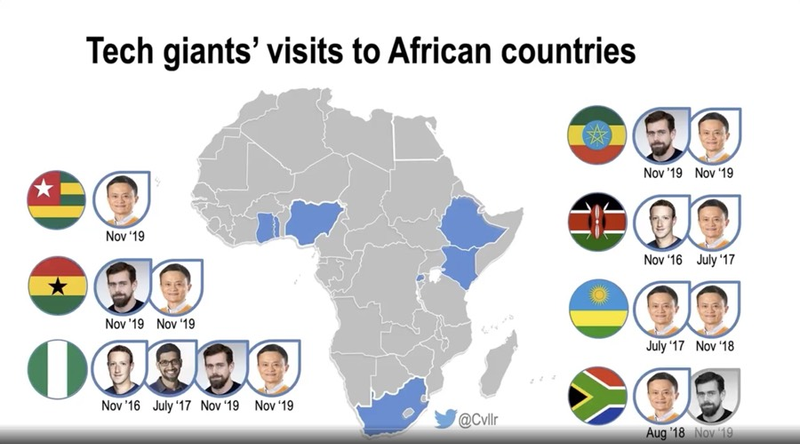
Explore More Blog Posts

The AI Design Gap: Moving Beyond One-Way Generation
There are plenty of tools capable of generating code from designs or directly from prompts. In theory, this looks like a dream scenario. It drastically shortens the journey from design to frontend development. The handoff is quicker, the design is easier to implement, and everyone involved is happier. Right?

Migrating an ERP-Driven Storefront to Solidus Using a Message-Broker Architecture
Modern e-commerce platforms increasingly rely on modular, API-driven components. ERPs… do not. They are deterministic, slow-moving systems built around the idea that consistency matters more than speed.

Automating Purchase Orders in E-Commerce: How Agentic AI Handles Unstructured Input
In an era of connected e-commerce, it’s easy to assume that every order flows cleanly through APIs or online checkouts. The reality, however, may be very different, especially in industries where B2B and wholesale operations still rely on unstructured, offline, or legacy input formats.